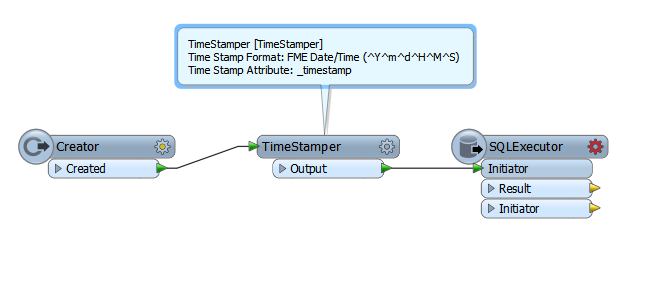So I wrote to a postgres database all the data and now I want to index it using a sql executor and have a timestamp on the index. I tried to use
"CREATE INDEX ct_table_data@Value('current_timestamp') on ct_table(data)
The big issue I have is it doesnt seem to time_stamp. I am useing the FME sql date function tool but no luck. Anyone have a good solution?





